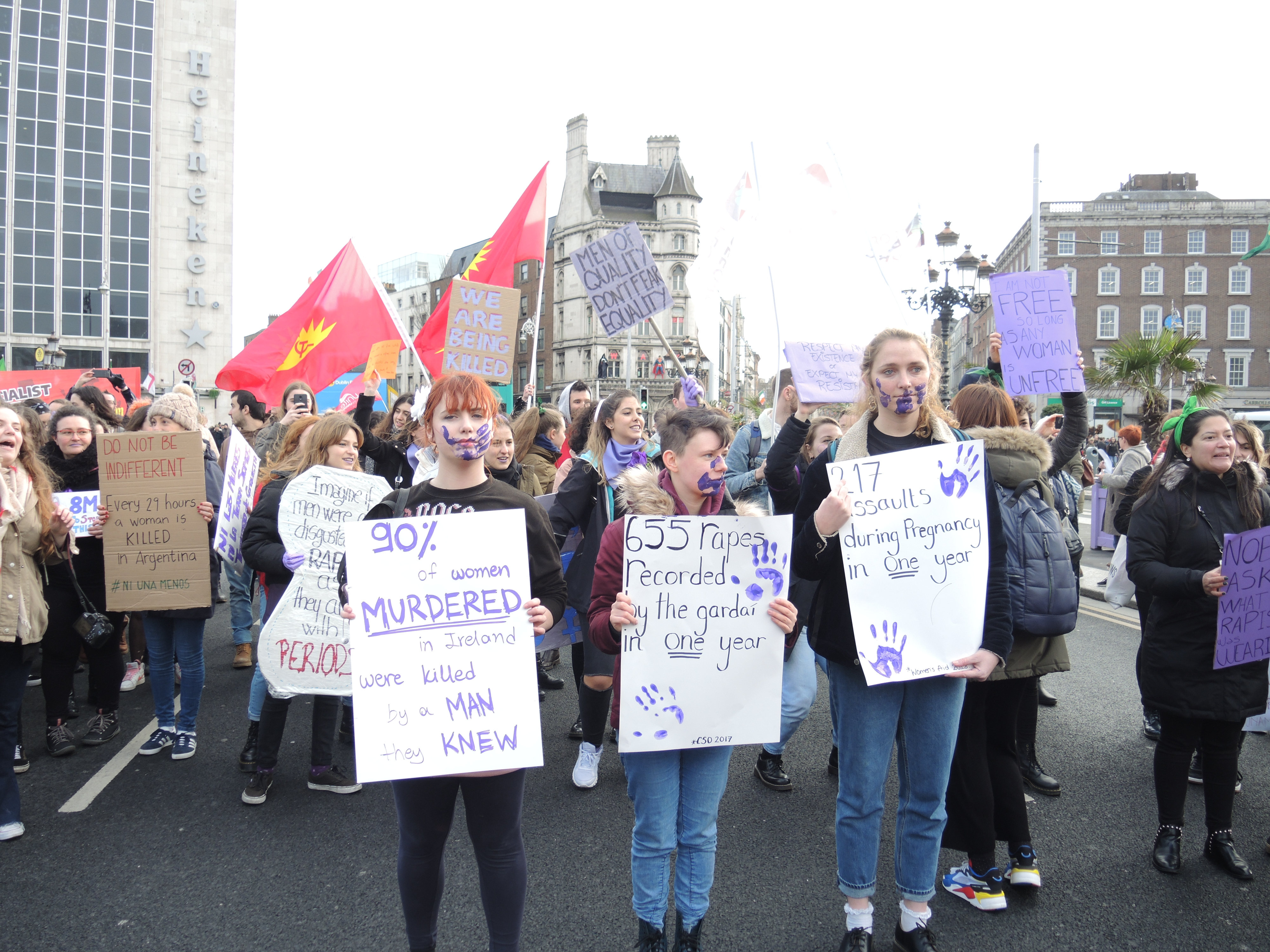Trinity students are among protesters engaging in a walkout today to mark International Women’s Day.
Students joined the Time 4 Equality rally on O’Connell Bridge this afternoon to call for an end to gender-based violence and the extension of abortion rights to Northern Ireland.
Speaking to Trinity News, Union of Students in Ireland (USI) Vice-President for Equality and Citizenship Aisling Cusack explained that International Women’s Day is an opportunity to “unite and demand more from our government”.
“2019 can’t be the year when complacency comes into effect”, Cusack continued. “We can celebrate the recent wins when it comes to achieving equality but we must also recognise that there is much more to be done.”
The rally sought to demand action against gendered violence, the gender pay gap, and precarious work and housing conditions.
Additionally, protesters hoped to show solidarity with campaigners for abortion rights in Northern Ireland and with workers’ struggles in Ireland and abroad.
“There are still huge inequalities in society, particularly among women and young people when it comes to issues such as housing, sexual violence and harassment and pay,” Cusack explained.
“To this day, our students in the north do not have marriage equality or the same abortion access as we do in the south. We campaigned together for those wins and it is important that we continue to show strong solidarity to our students in the north in their fight for choice and equality.”
In Northern Ireland, students are marching over the weekend in a call for access to abortion in the north, which is available elsewhere in Ireland and the United Kingdom. The referendum to repeal the eighth amendment, which prevented access to legal abortion, passed in the Republic last May with a 66.4% majority.
Speakers at the rally included Jessica Bowes, who addressed the launch of the 2017 Women’s Aid Impact Report.
Students have fought for women’s rights in recent #IBelieveHer and #ThisIsNotConsent protests, which have centred on sexual violence against women and Irish courts’ treatment of women who report sexual assault and rape.






